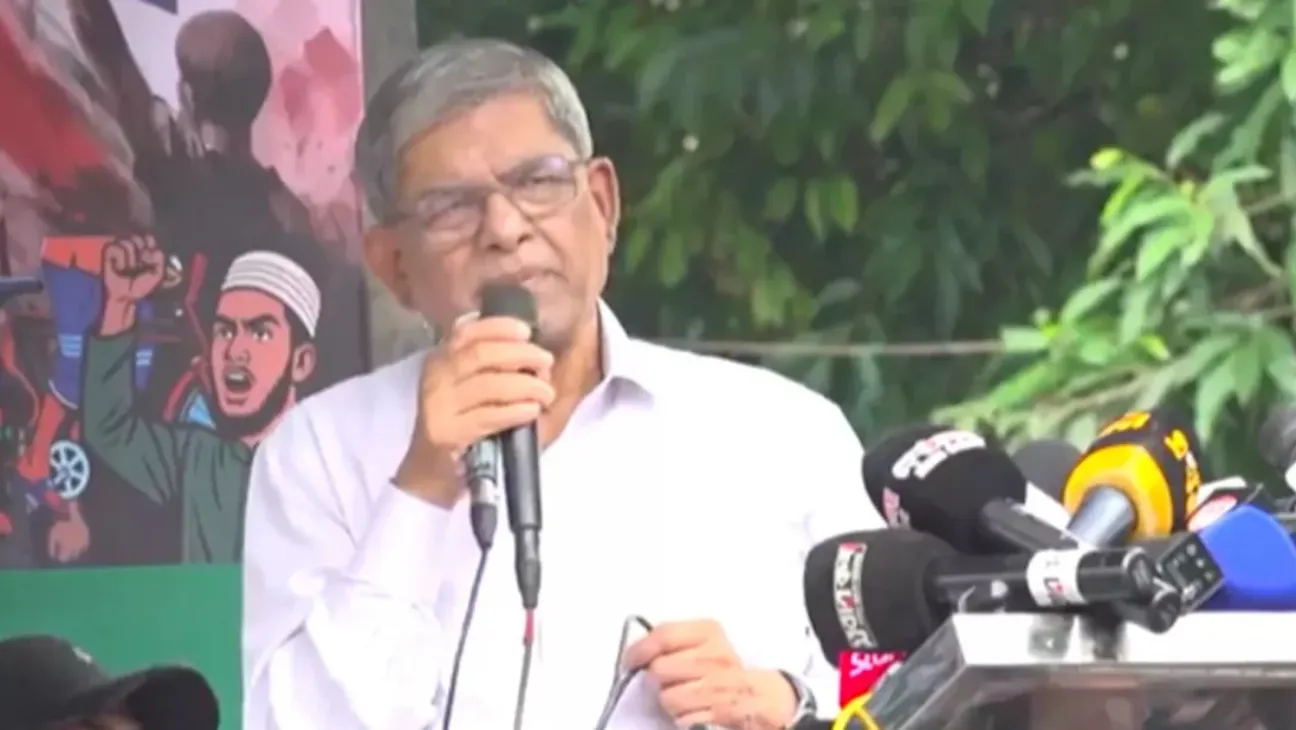BNP Secretary General Mirza Fakhrul Islam Alamgir said Monday he was “deeply saddened” by the recent arrest of five student activists accused of extortion, calling the news a painful sign of disillusionment in the movement that once galvanized the country.
“When I saw it in the newspaper, I felt as if I had turned blue with pain,” Fakhrul said, referring to the arrests of five coordinators of the Anti-Discrimination Student Movement. The students were reportedly detained over allegations of extorting Tk50 lakh from the home of a former Member of Parliament.
Fakhrul made the comments while launching a month-long set of programs by the BNP’s youth wing, Jubo Dal, in front of the National Museum at Shahbagh, marking the first anniversary of last year’s July uprising.
“What does this say about our future?” he asked. “Is this what we were hoping for after so much struggle?”
The BNP leader pointed to a bitter irony: the same young people who led last year’s protests are now being targeted as criminals. He called this a calculated strategy to choke off the growing calls for justice and democratic reform.
Fakhrul didn’t question the legal process directly but framed the arrests as symbolic of deeper unease. “Not even a year has passed,” he said. “And already, this?”
He used the occasion to reflect on the scale of last year’s protests, describing them as a popular uprising that cut across political lines. “It wasn’t just party activists or students. It was people of all ages, even those in their nineties,” he said. “They came out for one clear goal — to remove fascist Hasina from power and build a fair, democratic system.”
He claimed that over 2,000 people died during the movement and many others were injured, maimed, or blinded. He also cited the deaths of 79 Jubo Dal members and 142 from Chhatra Dal, the party’s student wing.
Fakhrul criticized the lack of coverage on what he called “sacrifices made by BNP activists,” suggesting the press has ignored the party’s victims. “Why are their pictures not being published?” he asked. “Journalists must call a spade a spade.”
He also voiced disappointment that, even after a year, he couldn’t confidently say the party or the country was ready to rebuild. Yet he pointed to exiled BNP leader Tarique Rahman as a steadying force. “He’s guiding us day and night from abroad,” Fakhrul said. “He led the fight to remove the fascists, and now he’s working on how to rebuild Bangladesh.”
Fakhrul repeated earlier allegations of torture against BNP members over the past 15 years under the ruling Awami League government. He described graphic incidents — broken hands, cut veins, beatings — and claimed that party members never surrendered or signed confessions.
He also renewed calls for the trial of former Prime Minister Sheikh Hasina, saying that no significant legal progress had been made even after audio evidence emerged publicly.
“It’s been one year. Why hasn’t her trial started?” he asked. “The BBC released recordings showing orders to use lethal force. Still, there’s no trial.”
Fakhrul rejected claims that the BNP was unwilling to work with the interim government on reforms, saying the party is actively cooperating. “But don’t try to trap us or paint us as uncooperative,” he warned.
His speech was driven by two key emotions: regret and urgency. He lamented how fast things fell apart after last year’s progress, while also begging the youth not to give up.
“You led the change,” he said. “Now you must build the future. That work hasn’t even started.”









